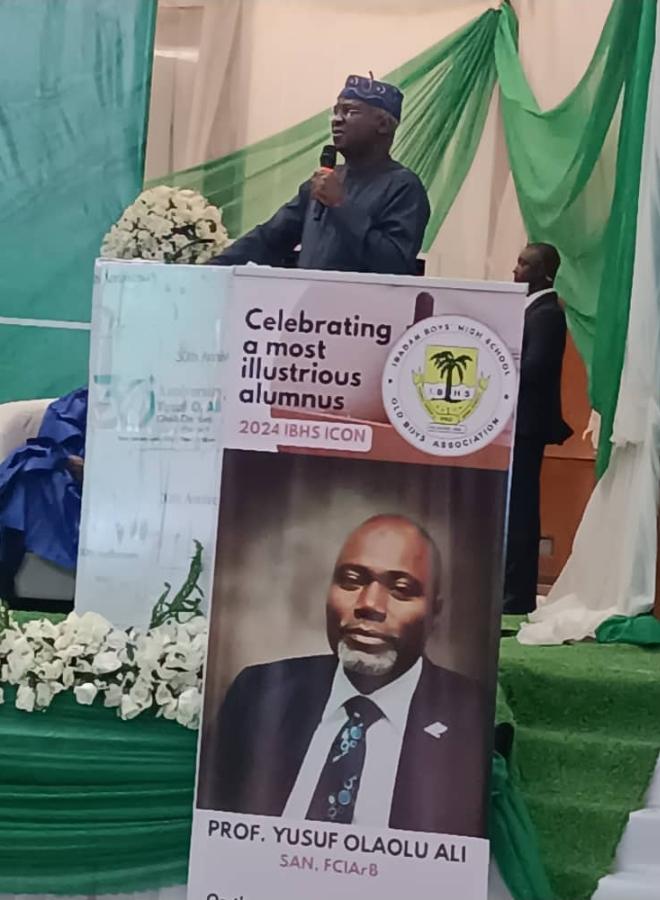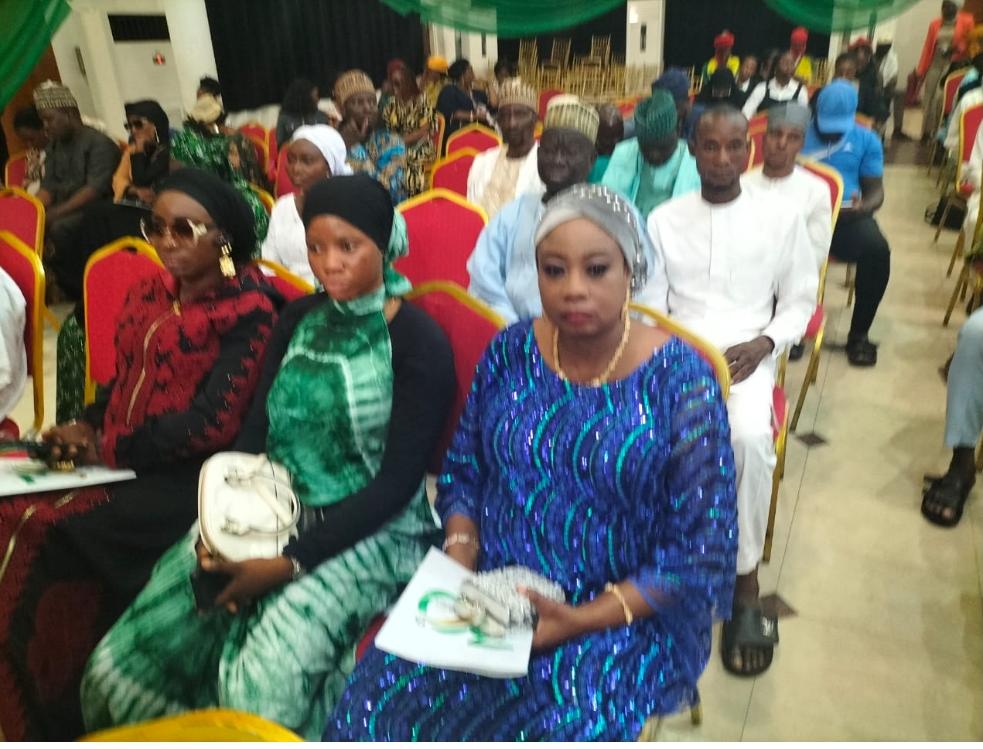In a momentous celebration marking three decades of legal prowess and societal impact, Yusuf Ali & Co. (Ghalib Chambers) on Saturday welcomed dignitaries and thought leaders to the Banquet Hall opposite Government House in Ilorin. The event served as a platform for profound reflections on the theme “Presidential or Parliamentary System of Government: Where is the Convergence?”
The event was graced by the Vice President of the Federal Republic of Nigeria, His Excellency Senator Kashim Shettima, GCON; the Chief Justice of Nigeria, Hon. Justice Olukayode Ariwoola, GCON; the Deputy Governor of Kwara State, Elder Kayode Alabi; the Minister of Justice, Prince Lateef Fagbemi; and former Lagos State Governor and Minister of Works, Mr. Babatunde Raji Fashola, SAN, CON.
Traditional Rulers across the country, ably led by the Emir of Ilorin, Alhaji Dr. Ibrahim Sulu-Gambari, serving and retired Judges of various courts across the country, Senior Advocate of Nigeria (SAN), Legal luminaries, Captain of Industries and well wishers of Mall Professor Yusuf Olaolu Ali trooped to the venue to celebrate the legal icon.
The Vice President’s remarks paid homage to the city of Ilorin, a cradle of legal scholarship and cultural diversity. He lauded the illustrious lineage of legal luminaries nurtured by Ilorin, including Professor Yusuf Olaolu Ali, SAN, whose influence has left an indelible mark on Nigeria’s legal landscape.
Amidst reflections on Nigeria’s political evolution and the challenges of governance, Senator Shettima highlighted the enduring commitment of Yusuf Ali & Co. to justice and integrity. He commended the firm’s resilience in navigating through tumultuous times, unwavering in their pursuit of truth and fairness.
Vice President Kashim Shettima, GCON, emphasized the need for Nigerians to take a critical role in governance and justice to sustain democracy.
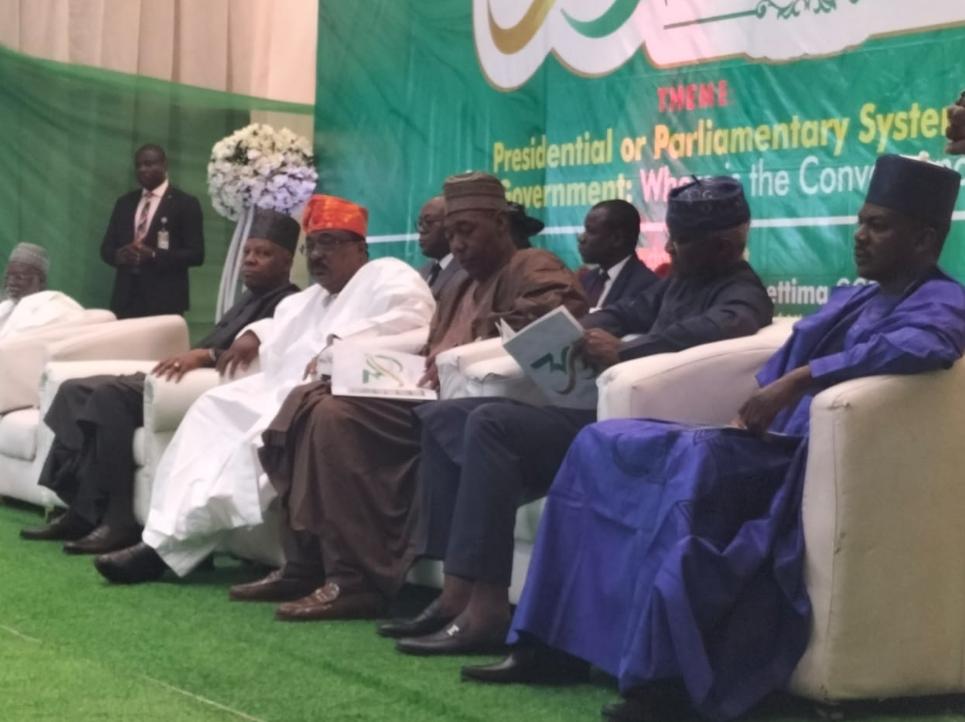
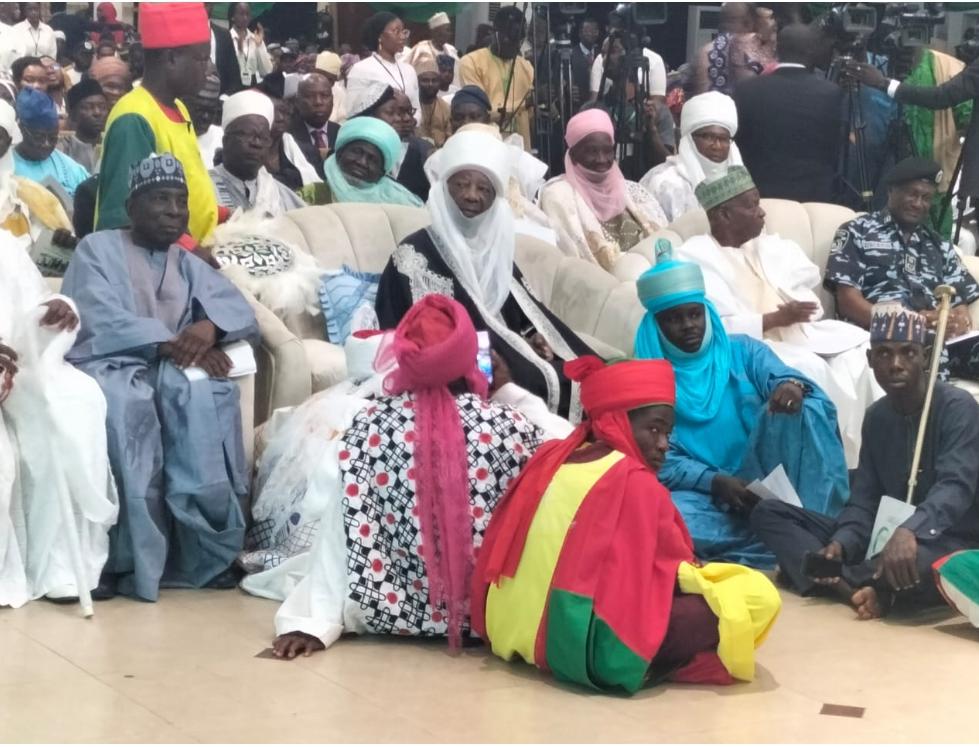
Reflecting on the essence of democracy and justice, Shettima emphasized that the survival of democracy is fundamentally dependent on the quality of governance and the unwavering commitment of those who uphold the law. “Democracy survives purely because of the quality of government,” he asserted.
He urged lawyers to remain steadfast in ensuring that both government and society operate within a legal framework, resisting any attempts to undermine justice.
The Vice President also addressed the ongoing debate on the most suitable system of government for Nigeria, referencing the nation’s experiences with both presidential and parliamentary systems. He highlighted that the common thread in all these systems is the administration of justice. “No matter what system we practice, we cannot solve the equation of justice in the allocation of resources and the distribution of dividends,” Shettima remarked.
Shettima’s speech celebrated Ilorin’s rich legal heritage and its contributions to Nigerian jurisprudence. He praised the city as a melting pot of cultures and a hub of Islamic learning and tolerance. “Ilorin has always been a city of culture and legal excellence,” he noted, acknowledging the city’s reputation as the “city of the wig and the gown.”
He paid tribute to the illustrious legal professionals who began their careers in Ilorin, including AGF AbdulRazaq, Chief Wole Olanipekun, SAN, and Chief Bayo Ojo, SAN, among others.
The Vice President also recognized the contributions of notable judges such as Hon. Justice Alfa. Belgore, former Chief Justice of Nigeria, and Hon. Justice M. A. Akanbi, former President of the Court of Appeal, among others.
Shettima praised Professor Yusuf Olaolu Ali, SAN, the anniversary’s honoree, for his significant influence in the legal profession and his dedication to justice and democratic principles. “Professor Yusuf Olaolu Ali has absorbed the influences of glory and added to the cultural and tolerant fabric of this city,” he said.
Shettima commended Yusuf Ali & Co. for their unwavering commitment to the rule of law over the past three decades. He highlighted the firm’s role in providing exemplary legal representation and contributing to the development of a just society. “These past thirty years are a testament to excellence in the business of law through Yusuf Ali & Co. and a reminder of their enduring pursuit of the rule of law,” he stated.
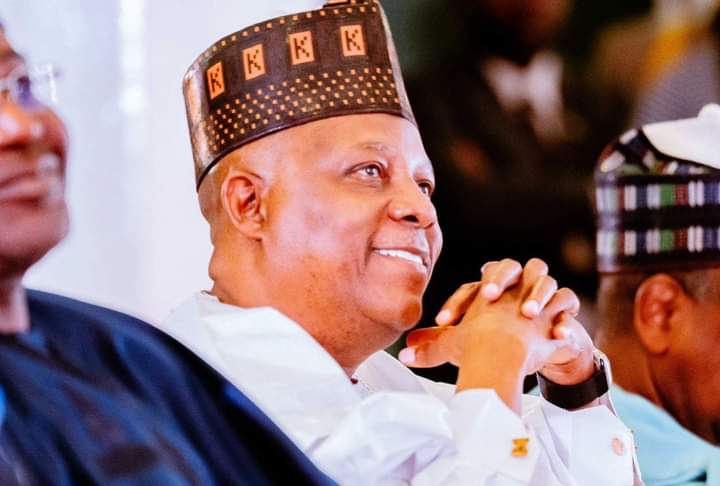
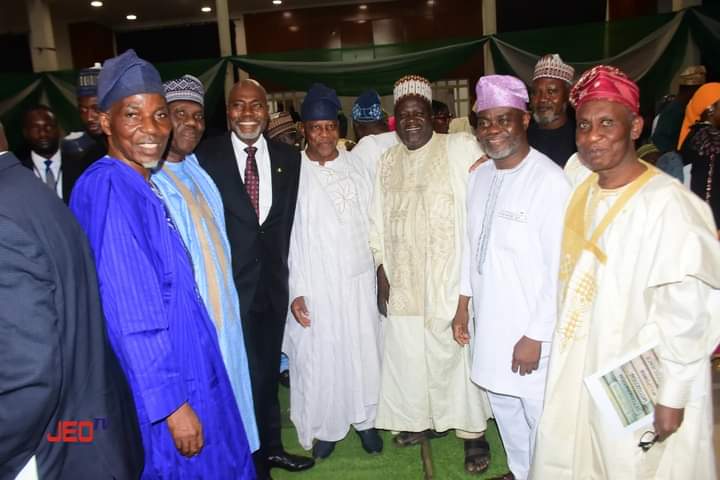
Following Senator Shettima, Governor AbdulRahman AbdulRazaq expressed his admiration for the accomplishments of Yusuf Ali & Co. over the past three decades. “By all accounts imaginable, Ghalib Chambers is a huge success,” he declared. “The success we are celebrating today is a product of hard work, dedication, consistency, investments in rich human capital and legal tools, and cultivation of useful relationships.”
Governor AbdulRazaq commended Mallam Yusuf Ali for his philanthropy and immense contributions to legal development in Kwara State. “Mallam Yusuf Ali, SAN, stands tall in the ranks of Ilorin legal giants who come immediately after the great Alikalis and our other forebears who had made their marks in the legal profession,” he said. He praised the firm for putting Kwara State on the legal map of Nigeria and West Africa.
Reflecting on the current political landscape, Governor AbdulRazaq acknowledged the significant legal reforms being pursued by the President, emphasizing the importance of national unity and peace in these discussions. “Wherever we stand in this debate, I appeal that we prioritize national unity and peace. The President is known for his bold visions and his commitment to a greater Nigeria. I urge that we give him all the support he needs to deliver on the Renewed Hope Agenda,” he stated.
Governor AbdulRazaq also took the opportunity to highlight Kwara’s evolving status from a civil service state to a hub of conferencing, arts, creativity, tourism, and agroprocessing. He invited guests to consider Kwara for their major events, noting the state’s peaceful and hospitable environment.
The highlight of the event was the lecture delivered by the guest speaker, Mr. Babatunde Raji Fashola, SAN, CON, former Governor of Lagos State and former Minister of Works. Fashola addressed critical issues surrounding the ongoing constitutional debate and the possibility of restructuring Nigeria’s governance system. “The issue of restructuring is fundamental,” he said. “Some have made unsustainable predictions about Nigeria’s future without restructuring, often placing the onus on the President. However, true restructuring must be a collective effort initiated by the states.”
Fashola emphasized the need for a deeper understanding and careful consideration of the implications of restructuring. He questioned whether the problems facing Nigeria were constitutional or if they stemmed from other factors, urging a focus on practical changes rather than merely amending the constitution. “Is the problem the constitution, or are we the problem?” he asked. He also highlighted the diverse interpretations of restructuring across different regions of Nigeria, underscoring the complexity of the issue.
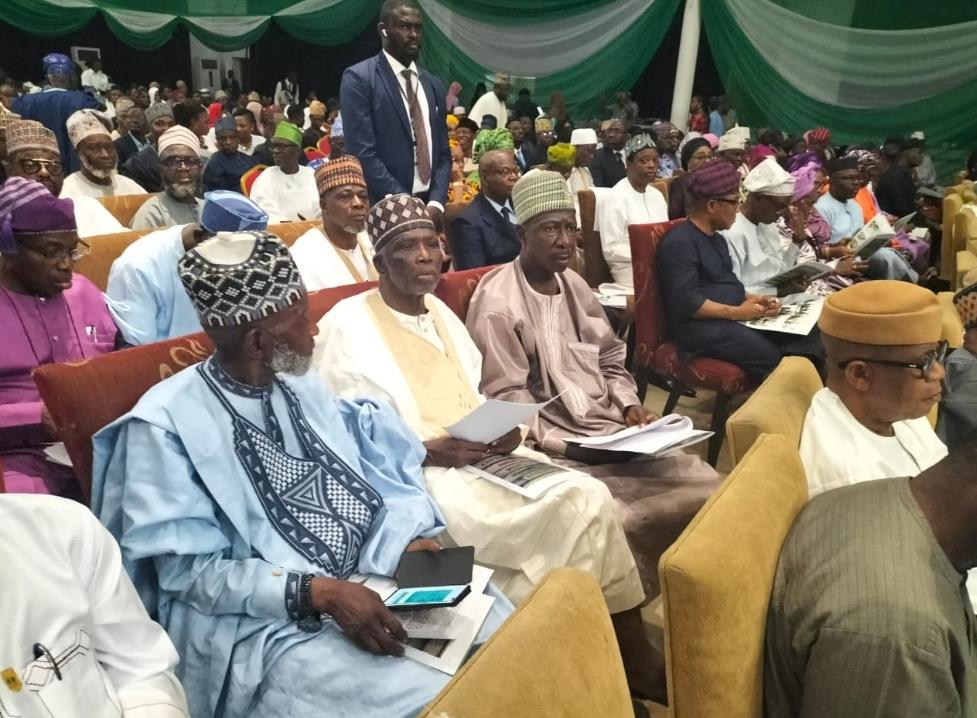
Touching on the parliamentary versus presidential system debate, Fashola presented arguments both for and against a shift to a parliamentary system. He acknowledged the potential cost savings and improved governance associated with parliamentary systems but also pointed out the risks of frequent government changes and the need for stability. “In a highly diverse country like Nigeria, our federal arrangement and presidential system may still be the best fit, provided there is sincerity of purpose and a consensus among the elite,” he noted.
Highlight of the occasion was the unavailing of a compendium, “Three Decades of Ghalib Chambers”, authored by Professor Yusuf Ali, SAN and Ayo Olanrewaju.
